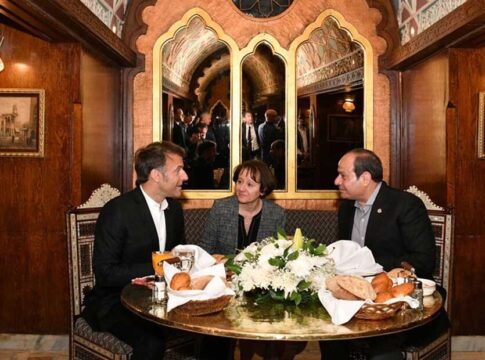Central to these agreements is the collaboration between Alstom and Egypt’s General Authority for Investment and Free Zones (GAFI) to establish an industrial hub at the Borg El Arab Dry Port. Additionally, a landmark project to produce green ammonia in the Red Sea is underway, with EDF Renewable Energy and ZeroWest working in conjunction with Egyptian authorities.
Transportation infrastructure is poised for transformation with an agreement to construct the Al-Roubiki-10th of Ramadan-Belbeis railway line, supported by loans and grants. In the health sector, plans to develop a center of excellence for oncology treatment in Cairo alongside a diabetes treatment protocol with Sanofi highlight the dedication to advancing healthcare.
The agreements extend to critical infrastructure enhancements, such as a wastewater treatment initiative and an electricity control center in Sharm el-Sheikh by Schneider Electric. These developments are anticipated to bolster Egypt’s energy infrastructure significantly.
Financially, Egypt’s collaboration with the French Development Agency (AFD) has secured €262.3 million in loans and grants, aiming to elevate trade with France by 25% to a target of $3.5 billion by 2025. This strategic move underscores Egypt’s ambition to diversify its exports, which include electrical appliances and mineral fuels, while enhancing imports of aviation and mechanical products.
Hossam Heiba, CEO of GAFI, shared Egypt’s broader economic aspirations, highlighting a target of $60 billion in foreign direct investment and an increase in exports to $145 billion by 2030. He emphasized the crucial role of the private sector in achieving these targets, projecting a 65% contribution to total investments.
Amidst these economic discussions, Cairo also hosted a tripartite summit with France and Jordan, focusing on pressing humanitarian concerns in Gaza. The summit stressed the urgency of a ceasefire to protect lives and deliver essential aid, aligning with international humanitarian mandates. It also called for respect for Jerusalem’s historical sites and rejected any potential displacement or annexation in Palestinian territories.
Dr. Noura Erakat, a human rights attorney, remarked on the summit’s importance, stating, “This collective call for a ceasefire and humanitarian aid delivery is a crucial step towards stabilizing the region and underscores the importance of international cooperation.”
These parallel initiatives in Cairo reflect a unified vision of economic expansion and humanitarian solidarity, setting a benchmark for future collaborations. By fostering strategic partnerships, Egypt, France, and Jordan are charting a promising course towards a future where economic prosperity and peace are intricately linked.


